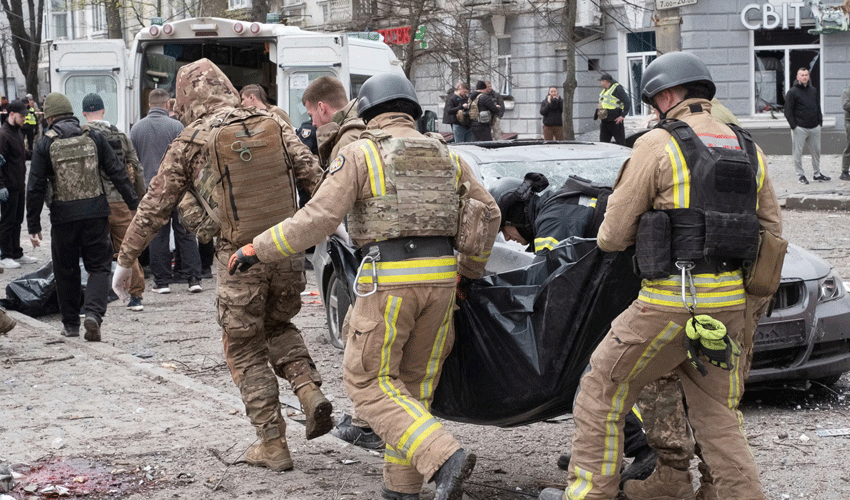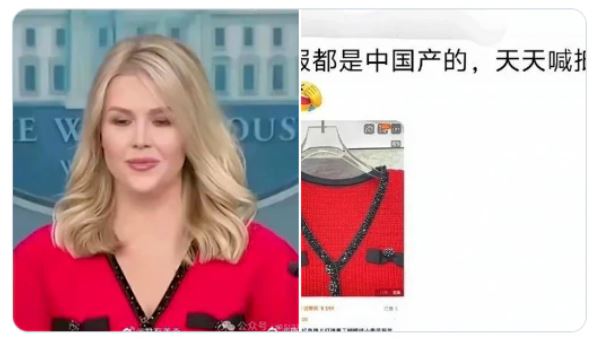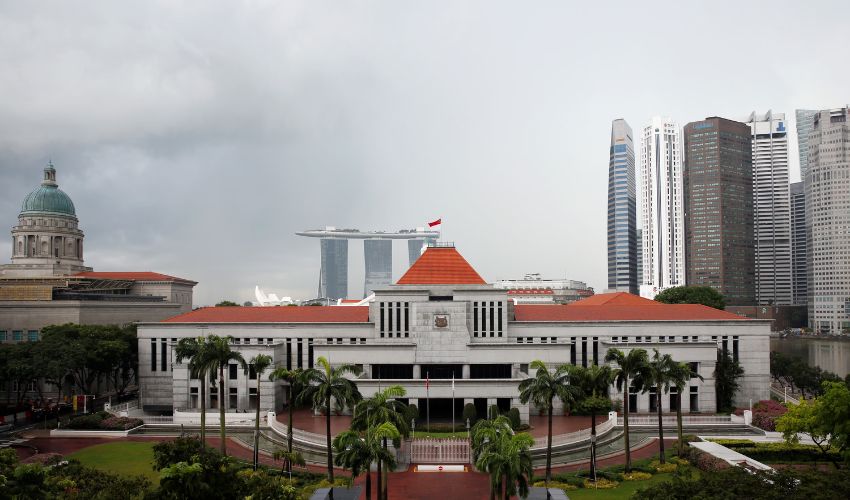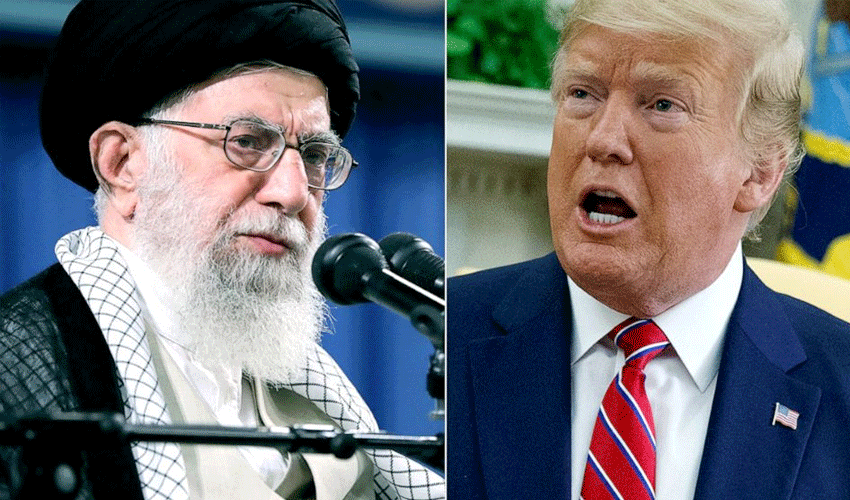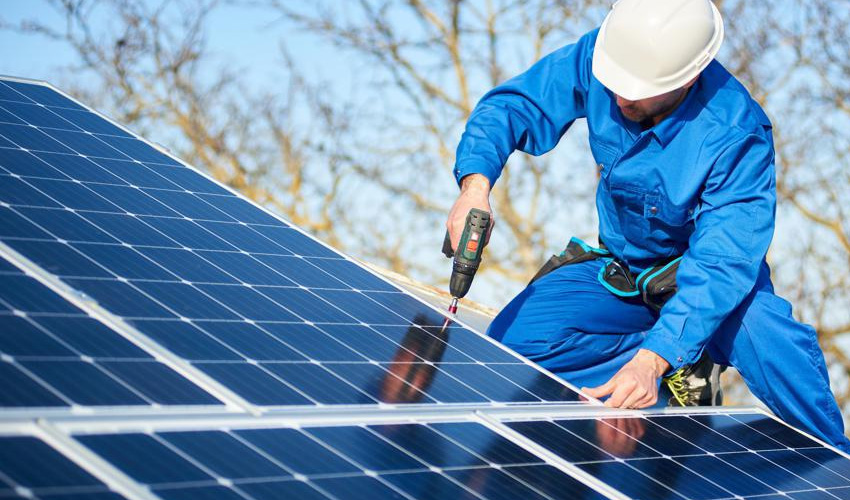At least 34 people were killed and 117 injured after two Russian ballistic missiles struck the northern Ukrainian city of Sumy on Sunday, in what officials described as the deadliest attack on Ukraine this year.
The strikes hit the heart of Sumy — a city located just 25 kilometres from the Russian border — leaving scenes of devastation, with charred vehicles and debris strewn across streets. Many of the victims were civilians, caught inside vehicles, public transport, or nearby buildings at the time of impact, Ukraine’s interior ministry said.
Ukrainian President Volodymyr Zelenskyy condemned the attack and urged the international community to respond forcefully. "Only scoundrels can act like this, taking the lives of ordinary people," he said in a video message posted on social media. Noting that the strike coincided with Palm Sunday, he accused Moscow of deliberately targeting civilians on a religious holiday.
A local resident, Yevhen, a 27-year-old PhD student, told Reuters: "You know, the people who are fighting against us always say that they are Orthodox believers… but we have experienced first-hand terrorism today. I have no words."
Sumy's acting mayor, Artem Kobzar, declared three days of mourning beginning Monday. He said the city, home to nearly a quarter of a million people, had long been on high alert given its proximity to Russia.
Interior Minister Ihor Klymenko said the missiles deliberately targeted civilians and described the timing as a "deliberate destruction of civilians on an important church feast day."
International condemnation
The attack drew swift condemnation from Western leaders. German Chancellor Olaf Scholz remarked, "These attacks show just what Russia's supposed readiness for peace is worth," while British and Italian officials echoed similar sentiments.
US Secretary of State Marco Rubio, in a statement, termed the attack a "tragic reminder" of why President Donald Trump’s administration has been attempting to broker an end to the conflict.
Trump’s special envoy, Howard Witkoff, reportedly held talks with Russian President Vladimir Putin in St. Petersburg on Friday to advance peace efforts. Trump has called on Russia to "get moving" on peace negotiations.
In an interview with CBS's 60 Minutes, recorded before the Sumy attack and aired on Sunday, President Zelenskyy extended an invitation to Trump to visit Ukraine. “Please come to see people, civilians, warriors, hospitals, churches, children, destroyed or dead,” he said.
Asked whether the United States continues to stand by Ukraine, Zelenskyy paused before responding: “Even in this pause of mine, there’s a problem… I want to answer truthfully and quickly that the United States is our strategic, strong partner. But the pause is doubt.”
He reiterated calls for the US to take part in a multinational peacekeeping mission and provide military support, particularly to safeguard Ukrainian airspace.
Cluster munitions suspected
Andriy Yermak, head of the presidential office, claimed that the missiles used in the Sumy attack contained cluster munitions — a controversial weapon type banned under international conventions that Russia has not signed. “The Russians are doing this to kill as many civilians as possible,” he said.
Maryana Bezuhla, a Ukrainian lawmaker, suggested on Telegram that the missile strike may have been the result of a leak regarding troop movements or gatherings in the area. However, Reuters could not independently verify the claim, and Bezuhla provided no evidence.
Local residents denied the presence of any military personnel in the area. “We live in the city centre, there is no military base, there are no soldiers here,” said Pavriz Manakhov.
Wider escalation feared
Later on Sunday, a separate Russian drone strike targeted the southern port city of Odesa, injuring five people and damaging a medical facility, regional officials confirmed.
The Sumy incident follows a deadly missile attack earlier this month in Kryvyi Rih — President Zelenskyy’s hometown — which killed 20 people, including nine children.
Ukraine’s Foreign Minister Andrii Sybiha said Kyiv is sharing details of Sunday’s strike with international partners and institutions, labelling it a war crime. The International Criminal Court, which Ukraine joined this year, is already investigating several cases of alleged war crimes in the ongoing conflict.
Russia’s defence ministry did not immediately respond to requests for comment. While Moscow routinely denies targeting civilians, independent monitors say thousands have died in Russian strikes since the invasion began in February 2022.
On Sunday, Russia accused Ukraine of attacking its energy infrastructure in two separate incidents over the past 24 hours. Under recently negotiated US-brokered ceasefire accords — which reportedly include a mutual ban on strikes targeting energy infrastructure — both sides have accused each other of repeated violations.





